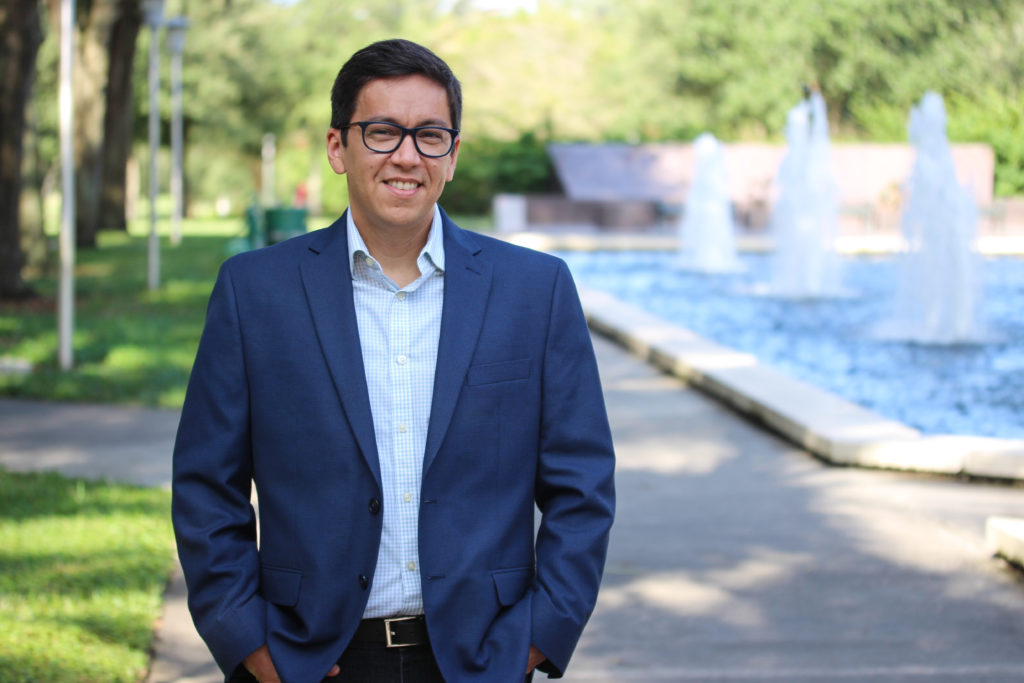The COVID-19 pandemic has instigated a great number of questions, and resulted in numerous subsequent findings, for researchers across the country. Often that research is focused on something other than the novel coronavirus’ scientific impact.
A recent study by Hope College Professor Dr. Rodrigo Serrão is one such example. Along with Dr. João Chaves of the Hispanic Theological Initiative, Serrão investigated the reactions and responses of three churches of the Brazilian diaspora in south and central Florida during the initial shutdowns induced by COVID-19. After viewing and listening to more than 50 online sermons, delivered in Portuguese and during the months of March, April and May, the two scholars found that “Brazilian immigrant churches in Florida reacted to the pandemic in civil, theological, and practical ways,” they wrote in “Immigrant Evangelicalism in the COVID-19 Crisis” for the International Journal of Latin American Religions.

“Because we both are Brazilians, we thought that we should try to find what is the response for these 100 percent Brazilian-focused church (in America),” said Serrão, assistant professor of sociology who began teaching at Hope this fall. “We knew that there was a lot more going on behind the cameras, but we said, ‘let’s take what they are saying in front of the cameras and let’s use that to see what they are doing.’”
In their attentive viewing of hours and hours of Facebook and YouTube sermons, Serrão and Chaves found that the three Brazilian churches responded in three primary ways.
“You have a lot of overlaps in how evangelicals in the United States think and how Brazilian evangelicals think. They share a lot of the same theology.”
First, the immigrant churches’ pastors encouraged their membership to comply with the authorities’ guidelines.
“Just to contextualize a little bit for you, in Florida, you had some (mainline) churches who were really angry about government restrictions,” Serrão observed. “In fact, one pastor of a megachurch there was arrested for having in-person services during the shutdown. But immigrants don’t have that luxury. I’m not saying that they weren’t as angry as those other pastors, but they had to show to their membership that they would follow the law. They are already a stigmatized population with labels attached like ‘undocumented’ or ‘illegal.’ They didn’t want that (stigmatization) to continue by not following the rules.”
The second finding from the study deduced that the sermons delivered by the immigrant churches’ pastors often had apocalyptic undertones.
“This was expected, especially if you think in terms of how evangelicalism in Brazil is a continuation of American missionaries’ message,” Serrão explained. “You have a lot of overlaps in how evangelicals in the United States think and how Brazilian evangelicals think. They share a lot of the same theology.”
Finally, the immigrant churches responded to the initial impact of the pandemic with practical acts of service and care by organizing food pantries and donations for members in need.
“It was clear that they knew they had to put their personal resources into action, and that they very much wanted to,” said Serrão.
This research resulted in one of the first papers to be published about church response to the pandemic, Serrão added. Fast access to online video helped with speedy data collection as did his prior knowledge of the churches he researched.
“Just because data was readily available, we still made sure that we were thorough and systematic on what we were looking for and not give up, even when the audio was difficult to hear sometimes,” he said. “Consistency and persistence got us what we needed.”
Serrão and Chaves are now in the process of translating their article into Portuguese for inclusion in an edited book in Brazil.

